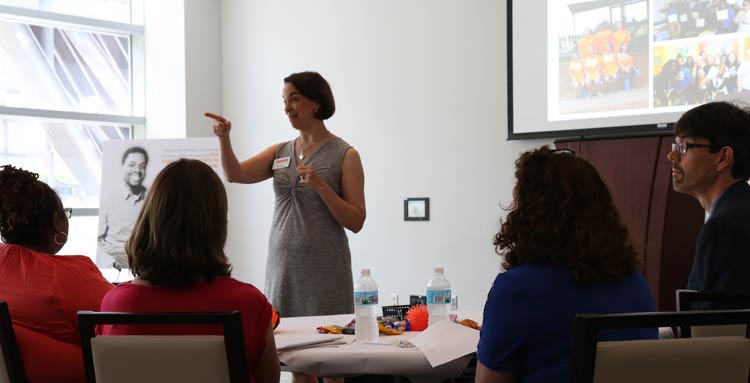We often hear the following comments from teens in Wyman’s programs:
- “My school is not a very diverse place. In Wyman’s programs, I’ve met people from different backgrounds other than me, and I have learned a lot…”
- “When we do community service, I really get to understand some of the problems other people face, and I feel like we make a real connection with them…”
- “I had never met someone from that area of St. Louis… Now I get where they’re coming from…”
Empathy is the common thread that runs through each of these comments, and for this reason, our Wyman team had a particular interest in exploring empathy further during our work in the SEL Challenge.
During the challenge, Wyman collaborated with seven other youth-focused programs to identify best practices to equip teens with valuable social and emotional skills. The nationwide project was led by Chicago’s Susan Crown Exchange (SCE) and the David P. Weikart Center for Youth Program Quality.
The research revealed several best practices for helping youth build this critical social emotional skill, empathy:
- Empathy can best be described as relating to others with acceptance, understanding and sensitivity to others’ diverse perspectives and experiences. Empathy occurs when judgment or indifference is replaced with understanding and caring. Sharing personal experiences and stories, and listening to those of others, is the first step to building empathy. We can help youth build this skill by encouraging them to share their own narratives and journeys with one another.
- Empathy is a natural response when youth listen deeply to the experiences, emotions and stories of their peers and suspend judgment. We must ask ourselves, in the often hectic realities of today’s schedules, are we being intentional about creating a space and culture that encourages young people to listen deeply to one another, and others in the community?
- As youth build trusting relationships, they begin to support each other, and recognize emotions in each other. In our programs, we must create opportunities for youth to build trust among each other.
- A safe place and a highly effective program is about more than the right structure or the right content. Nothing replaces the importance of genuine caring. As youth-serving professionals, we must constantly question how “genuine caring” shows up every day in our programs.
- Staff create the space for empathy to develop by being authentic models for youth. Spaces cannot be safe unless staff are continually modeling empathy and emotion management skills.
To explore the topic of empathy further, visit page 60 of the field guide, Preparing Youth to Thrive: Promising Practices in Social and Emotional Learning, which can be downloaded for free at selpractices.org.


